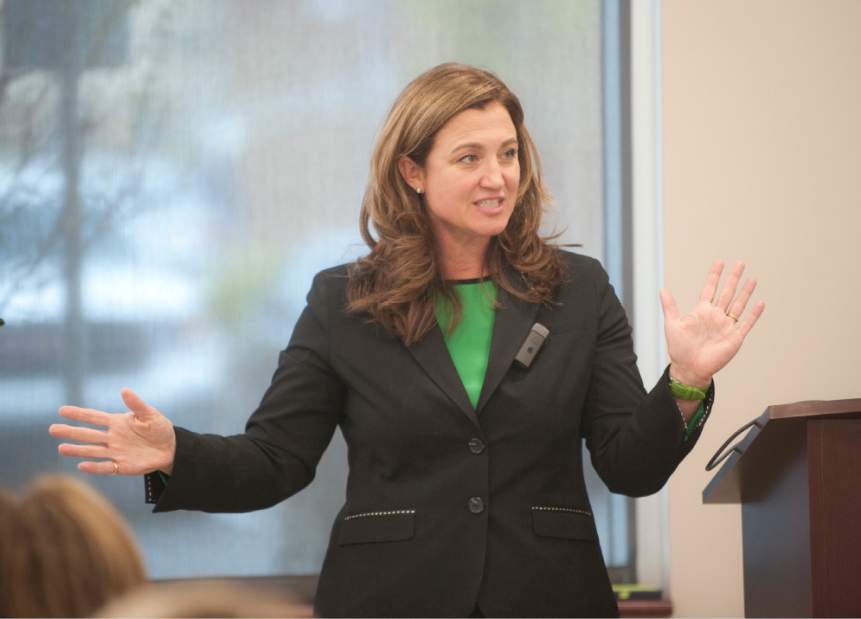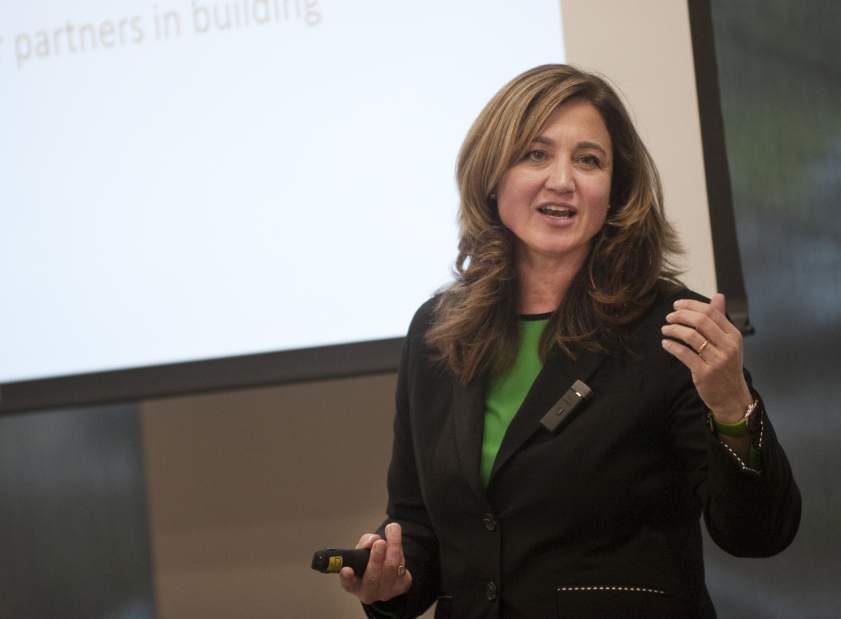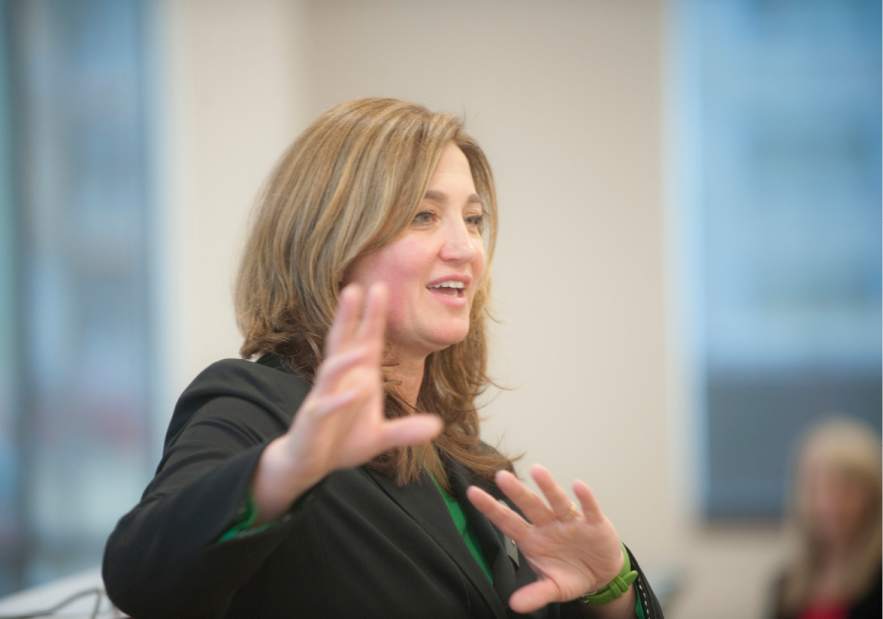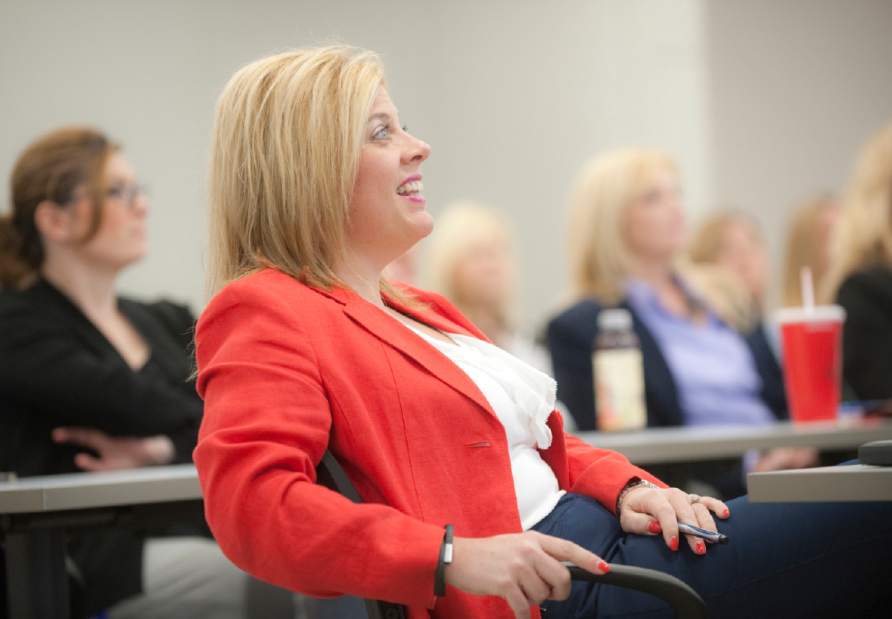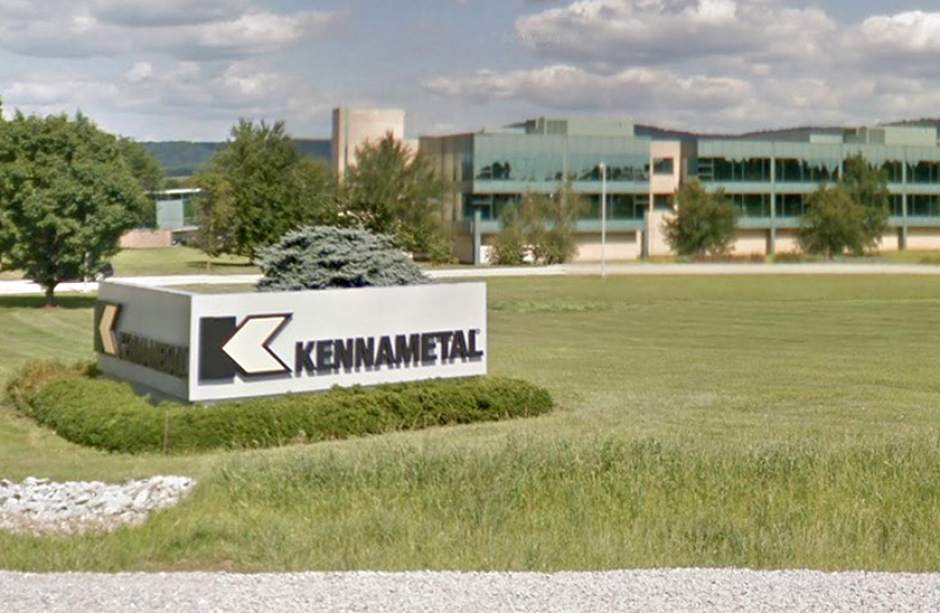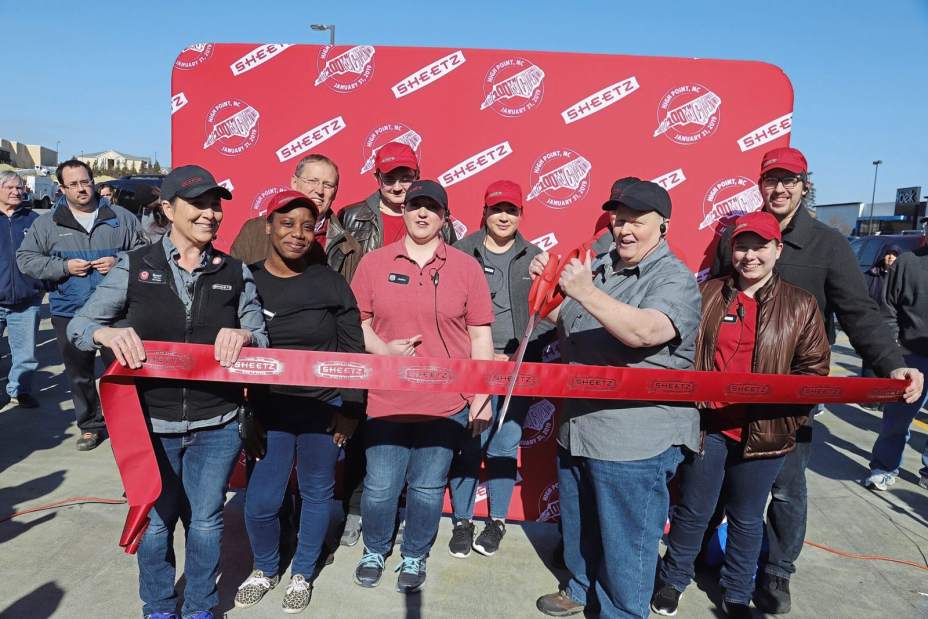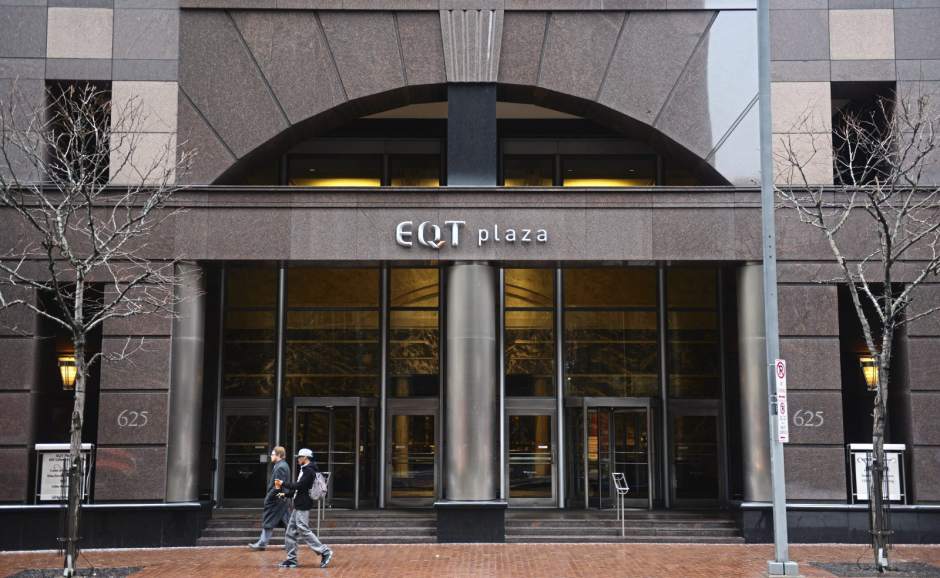Deborah Degner once prefaced business pitches with “I'm not sure this makes sense,” and would say “I'm sorry” out of habit.
Now the government relations manager at Noble Energy in Cecil follows the playbook of Carnegie Mellon University's Leadership and Negotiation Academy for Women.
“I have to stop and pause every time I enter a meeting and think, ‘Don't do that,' ” she said. “That has been a very big shift for me.”
Degner is among more than 50 mid-career women who have completed the weekend executive development program entering its third class of participants.
The academy, which the university boasts as the first of its kind, meets one weekend a month for six months to teach women how to strategize, align interests, navigate power politics and network.
Participants say they're taking the skills back to the office with rapid, tangible results — becoming more effective workers, being promoted and saving their companies money, all while forging a better route to the top of their fields. Many are organizing similar in-company programs to teach female colleagues what they learned.
“We're giving women real skills that they can use,” said Linda Babcock, co-founder of the academy and a professor of economics at CMU who started the program with seed money from Alcoa Foundation. Her co-founder, M.J. Tocci, died last year.
The program's goal is to elevate more women into executive positions — a gap that extends into the energy industry. A Trib review of the top 25 Marcellus drillers by production found top female executives accounted for 25, or 10 percent, of the 253 executives listed on the management team on their websites. Consol, Rice, Exxon Mobil, Shell and Anadarko do not list any women on their executive management teams, according to their websites.
Women earn nearly 60 percent of undergraduate degrees, and 60 percent of master's degrees, but represent only 14 percent of executive officers and 4 percent of Fortune 500 CEOs, according to the Center for American Progress, a nonprofit policy and advocacy group that studies gender disparities.
“If life was one big grad school, women would dominate everything,” said Leanne Meyer, the academy's program director. “It's really learning that workplaces don't work by those rules, and so how do you learn to navigate a new set of rules?”
That's the question the academy seeks to answer for women struggling to advance in their careers. Though there are systemic, often unconscious biases that some women encounter, the biggest hurdle is getting women to negotiate more, Meyer and Babcock said.
Learning ‘swagger'
Along with classroom instruction, the academy provides one-on-one executive coaching and emphasizes negotiation tactics and timing through intense role-playing scenarios, Meyer said. Understanding how negotiation goes beyond one's annual salary review is key, she said.
“What's important to us is how you negotiate across your life — for your resources, for your team, to pull people into projects, to negotiate to work on new things,” Meyer said. Few women do that, or are aware that they can, she said.
Ingrid Lightbody, a project manager for digital marketing at Adobe, didn't negotiate much until she flew from the San Francisco Bay area to take part in the program. It upended her to-do list approach to her career, she said.
“I thought, ‘The more things people see I'm doing, the better,'” she said. “Then I realized ... I need to be more mindful about what I say yes to.”
Trying to achieve perfectionism can trap many women aiming for the executive suite, Meyer said. Later career stages are marked more by achieving results through inspiring and leading others, not by sheer determination, she said.
“That's a far more murkier, grayer, non-rule-bound time in your career, so you need to approach that differently,” Meyer said. “Sometimes women can't make that shift and they think if they just work hard enough ... they'll achieve it.” Using a different approach served Lightbody well. Initially, Adobe agreed to pay half of the $14,900 program fee, she said. She since has renegotiated and Adobe paid all of it. She credits the classes and direction from her executive coach with helping her to realize her dream of going to business school. She'll start an executive MBA program at Massachusetts Institute of Technology in the fall, and Adobe will pay for that schooling.
“I feel like I'm three inches taller and I've got swagger from this program,” she said.
Sharing skills
Employers often pay at least part of the program's tuition for an employee, but its cost means most participants are from large corporations. Carnegie Mellon is raising money to establish an endowment so women who can't afford the tuition can attend through scholarships, Babcock said.
But the Academy's tuition can be a prudent expense for companies that stand to save money in the long term and boost productivity when women leverage their newfound negotiating acumen on their employers' behalf. Several academy graduates have saved their companies more than $500,000 on vendor contracts, Meyer said.
Degner's boss, Ben Dillon, Noble's vice president of government relations and communications, said his company's investment was worth it.
“I've absolutely seen (her) shift as a leader, (saying) ‘I need to own the outcomes, not only for myself but for the company,' ” said, Dillon, who is based in Houston.
Contrary to the perception that women fiercely compete against one another at work, several graduates say that they forged supportive, encouraging friendships and professional contacts through the program.
“There is clearly a kinship, a network, and environment of strong, powerful women,” said Rochelle Martin, a managing director at FedEx Ground in Kernersville, N.C., who went through the program in 2013. “I see everybody in that program as my sister.”
Degner organized a recent negotiation seminar at Noble that drew more than 50 women from Noble, Range Resources Corp., EQT, the Marcellus Shale Coalition, and law firm Steptoe & Johnson. She is working on a similar program to help women at Noble.
Although negotiation is a cornerstone of Degner's job as a professional lobbyist for Noble's oil and gas drilling across Appalachia, she hadn't been as methodological about her approach, she said.
“I spend more time thinking about these things than before, rather than going in and saying, ‘Here's what I need,' ” she said.
Now, she said, she's negotiating for an expanded role as the company restructures — an opportunity she would not have sought before.
Katelyn Ferral is a Trib Total Media staff writer. Reach her at 412-380-5627 or kferral@tribweb.com.


